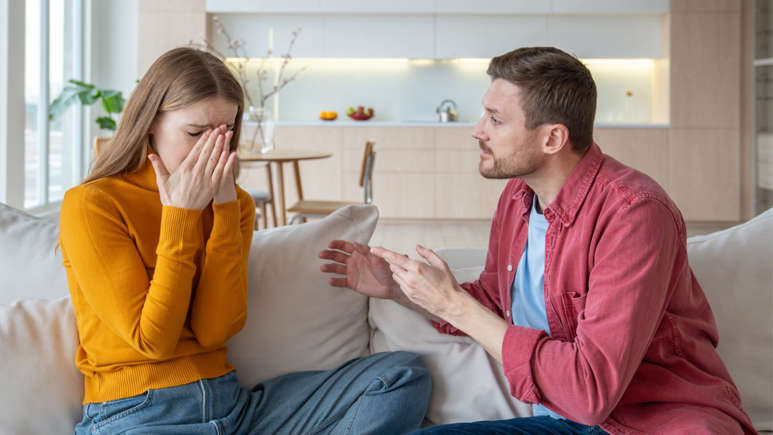I’ve lost count of how many times I’ve heard people confidently explain what they think causes autism. It’s rarely a gentle suggestion; most people present their theory like it’s an unshakable fact, as if they’ve personally cracked the code. What’s interesting is that many of their theories contradict each other. Over the years, I’ve come across three popular explanations: toxins such as heavy metals, trauma, and genetics. I want to unpack each of these and share a new perspective about autism that we can all benefit from.
The Heavy Metals Theory
I can’t tell you how many times people have passionately written to me or preached that all autism is caused by toxins, specifically heavy metals like mercury and aluminum. I’ve had people suggest chelation therapy, strict detoxes, and wildly restrictive diets to “pull the metals out” and, in their words, “heal” autism.
It’s happened to me at various gatherings, and even at one awkward dinner party where someone spent an hour trying to sell me on their detox program. At the time, I didn’t have the assertiveness to push back, but something in my gut didn’t feel right.
This belief that all autism is caused by toxins originates from the idea that vaccines cause autism, which took off after a 1998 study by Andrew Wakefield. That study has since been retracted and discredited (The Lancet, 2010)1. Massive studies involving hundreds of children have shown no link between vaccines and autism (Hviid et al., 2019; Taylor et al., 2014).2
However, more recently, new studies are showing links between childhood vaccines and autism,3 but these links are directly correlated to a specific type of autism referred to as ‘regressive autism.’4 Regressive autism, also frequently known as profound autism, is labelled ASD level 3 in the DSM-5 and is highly distinct from autism labelled ASD 1 and 2 in the way that these individuals have extremely little autonomy.
Parents of children with profound autism have shared that their kids seemed to be developing typically until, at a certain point, they suddenly lost all of their skills or abilities, sometimes almost overnight5. These children who are diagnosed with ASD 3 with very low levels of autonomy don’t seem to respond well to conventional therapies, nor do they improve with time. In contrast, people diagnosed with ASD 1 and 2 develop abnormally from birth and demonstrate significant improvements in their functionality when given behavioural therapies and supportive environments.6
There appears to be a significant difference in outcome between people who were born autistic and those who experienced regressive autism.7 Vaccines may have harmed children with regressive autism8, but that does not explain why there are so many children diagnosed with Autism levels 1 and 2 who have never been vaccinated.
I know many parents who faithfully practiced attachment parenting, breastfed for more than two years, and did not vaccinate their children. Yet, in some of these families, there are still kids who are diagnosed with Autism levels 1 & 2.9 It’s evident that if heavy metals were the sole cause of every type of autism, then most fully vaccinated children would be autistic, and there wouldn’t be unvaccinated children with autism, which is not the case.
The “toxins” theory is not just inadequate; it doesn’t explain how so many unvaccinated people are autistic and why most vaccinated individuals are not. There is more to the existence of autism than just an inability to detox.
Heavy metal poisoning is real, but it doesn’t foster or explain the innovative thought patterns, advanced creativity and intuition, wisdom, genius, hyperempathy, telepathy, profound connection with animals and nature, or special abilities such as pattern recognition, advanced spatial reasoning, mathematical abilities, capability of absorbing and recalling vast amounts of information,10 and other impressive and unusual neurological skills observed in many autistic people.11

The Trauma Theory
Last week, my colonics practitioner confidently told me that all autism is caused by trauma. She said that both Peter Levine and Gabor Maté support this theory. I paused for a moment. I’ve actually read both of their work.
I love Gabor Maté’s writing. His insights about childhood development, addiction, ADHD, and the impact of disconnection are brilliant and deeply compassionate. I’ve also explored Peter Levine’s Somatic Experiencing work, which has helped me personally move stuck trauma energy out of my body.
But here’s the thing, neither of them actually says that all Autism is caused by trauma. Maté has suggested that trauma can influence how conditions like ADHD show up, and he’s been curious about the ways early stress shapes the brain. He sometimes speculates about autism, but even he has said we still don’t fully understand its origins. Peter Levine focuses on how trauma gets stored in the body and how to release it. He hasn’t claimed that trauma creates autism. If we look at current scientific studies, we see that trauma has not been identified as the root cause of autism.12
I’ve experienced trauma. A lot of it. Complex trauma, relational trauma, and the trauma of feeling out of place my entire life. And I’ve also experienced relief when I realized I’m autistic, not because something went wrong, but because it finally explained the way my brain has always worked. Trauma can absolutely shape how autism is expressed, and most autistic people carry trauma because growing up autistic in a neurotypical world is traumatic.13 Thankfully, trauma can be released from the body by using somatic therapies, plant medicines, and other modalities, which improves people’s quality of life. However, healing trauma doesn’t make autism disappear. This is because trauma doesn’t cause autism, even though autistic people are more likely to be traumatized.14
Current research strongly supports that for the majority of autistic people, autism begins in utero15 and shows detectable brain differences in infancy, well before trauma could occur. Being autistic is a way of being that’s wired in from the beginning.16

The Genetic Theory
The most well-supported explanation to date, backed by decades of research, is that autism is primarily genetic. Autism tends to run in families, and studies of twins consistently demonstrate a strong genetic link. If one identical twin is autistic, there is a high likelihood that the other twin will also be autistic.17
Autism is associated with differences in brain structure and connectivity that are visible in early development. Studies using infant brain imaging18 have shown that many of these neurological patterns can be seen as early as 6 months old, before a child has had significant social exposure or potential for trauma.
There are some mild environmental influences (like parental age, prenatal health, or certain pregnancy factors). Still, these are not causes; they slightly increase the likelihood in children who are already genetically predisposed.19
The genetic foundation of autism is so well-established that the American Psychiatric Association focuses on support and accommodation, not on cures. And as a person who is diagnosed with autism, I can vouch that this is the right direction. I wouldn’t want to be cured, even if it were possible, and I wouldn’t want to miss experiencing the people I love the way they are now.
When people pursue theories such as detoxes, miracle cures, or the belief that autism is merely a trauma wound, they convey a harmful message: that autistic individuals are broken and need to be fixed, suggesting that we should not exist as we are. This message inflicts significant harm and negatively impacts those who are already at a high risk for depression and suicide.20
I have spent years unlearning the belief that there is something wrong with me. I’ve also spent a long time trying to feel at home in my own body. I know I am not alone in this experience. Autistic individuals do not need to be cured; we need understanding, support, and environments where our nervous systems can finally find relief.21
We don’t need to be dragged through detoxes22 or forced to “process” ourselves into becoming more neurotypical. What we need and will benefit from the most are safe spaces where we can be fully ourselves, including our quirks, stims, sensitivities, and all.23

The Spiritual Theory
There’s a part of me that’s always felt out of step with this world and more connected to the divine, that finds deep comfort in a spiritual explanation of autism. This isn’t about religion or dogma, but about connection, purpose, and the mystery of existence.
Imagine that every soul is a fractal of the divine Source. The infinite, all-encompassing energy some call God, Goddess, Universe, or simply “the all.” This Source is not separate from us; it flows through everything and every one of us, including you and me. Every soul carries within it a spark of that infinite essence.
Before we are born, our souls choose the reasons and locations for our incarnation. We determine the kind of human experience we wish to have, the body we want to inhabit, the lessons we aim to learn, and the types of growth we seek for ourselves, those around us, and the world at large. Our lives are not random; they are an intentional expression of spirit, a way for the divine to know itself intimately and uniquely.
From this lens, autism is not a mistake or a misfortune. Instead, it’s a conscious choice by certain souls to experience the world in a richer, deeper, and more intense way, a more profound way of being human.
You might wonder, why would a soul choose to be autistic, knowing it means facing social misunderstanding, sensory overwhelm, and challenges with communication? The answer is that autistic ways of being offer something valuable and needed in the world. Some of these things are:
Depth of perception – People with autism experience the world in heightened detail. We see patterns others miss. We notice subtleties, textures, and connections that can inspire new ways of thinking and creating.
Authenticity – Many autistic individuals possess a raw honesty and directness. We do not naturally adhere to social scripts; this authenticity can be a powerful force for truth and change.
Different wiring for a changing world – The planet is evolving rapidly, and the world needs new perspectives, different ways of processing information, solving problems, and relating to each other. Autistic minds bring creativity, resilience, and innovation.
Healing through presence – Our presence and unique ways of being can help humanity heal from old patterns of disconnection and superficiality. We invite others to slow down, be present, and appreciate the diversity of cognition and emotion.
I know this because I’ve experienced it firsthand. For years, I’ve felt like I was carrying something “wrong” inside me. I tried to fit into boxes that didn’t feel right. The social cues, sensory overload, and intense emotions all feel like obstacles in a world that is foreign to me. But when I began to see my autism not as a problem but as a choice – my soul’s deliberate path – I felt a profound shift.
I started to honour my sensory needs instead of fighting them. I embraced my intensity instead of numbing it. I allowed myself to be vulnerable and authentic, knowing that was exactly who I was meant to be.
This spiritual perspective provides me with strength on overwhelming days, reminding me that my experiences, no matter how challenging, are sacred and meaningful.
Could autism be a part of the collective awakening? What if souls who chose autistic bodies are here to help humanity expand its consciousness? They could help humanity learn to embrace differences, complexity, and new ways of relating to one another. In this spiritual framework, autism isn’t a burden to be lifted. It’s a gift to be honoured.
Whether you fully resonate with this spiritual theory or see it as a metaphor, I invite you to hold it with curiosity. Autism, like life itself, is a mysterious and multifaceted phenomenon. It can be approached through science, psychology, spirituality, and lived experience. For me, the spiritual theory offers peace, purpose, and hope. It reminds me that every autistic person is a vital expression of the divine, a unique thread woven into the vast, beautiful tapestry of existence. This perspective not only has the power to improve the lives of autistic people but also to make the world a more gentle and accepting place for everyone.
There are so many stories people tell about autism. Some are limiting. Some are harmful. Some miss the point entirely. However, the story where our souls chose this path intentionally is empowering. While it doesn’t make life easier or eliminate our challenges, it means there’s a divine purpose in our differences and our struggles. It signifies that we are not here by accident and that we are not broken. Instead, the spiritual perspective implies that we’re here to bring new ways of seeing, feeling, sensing, and being. Perhaps we are meant to assist humanity to evolve into something more honest, authentic, and beautiful.

- https://pmc.ncbi.nlm.nih.gov/articles/PMC2831678/ ↩︎
- https://www.acpjournals.org/doi/full/10.7326/M18-2101?download=true&journalCode=aim ↩︎
- https://pubmed.ncbi.nlm.nih.gov/21623535/ ↩︎
- https://pmc.ncbi.nlm.nih.gov/articles/PMC3364648/?fbclid=IwY2xjawLBzMBleHRuA2FlbQIxMABicmlkETFKc1lzUG43S0ZlcVlZSmJiAR6PkDdRs7IAy8qai5EvDQCWIwX0PtTB56ABzz7wVPtzw2qct4z-KJTFQ2Dqvw_aem_uRoR25wF0ZmMWT28VT-yhQ ↩︎
- https://pubmed.ncbi.nlm.nih.gov/21993250/ ↩︎
- https://pubmed.ncbi.nlm.nih.gov/15819649/ ↩︎
- https://pmc.ncbi.nlm.nih.gov/articles/PMC12166510/ ↩︎
- https://pubmed.ncbi.nlm.nih.gov/22099159/ ↩︎
- https://pubmed.ncbi.nlm.nih.gov/31992555/ ↩︎
- https://pubmed.ncbi.nlm.nih.gov/12030094/ ↩︎
- https://pubmed.ncbi.nlm.nih.gov/20630121/ ↩︎
- https://pubmed.ncbi.nlm.nih.gov/28331572/ ↩︎
- https://pubmed.ncbi.nlm.nih.gov/37616302/ ↩︎
- https://pubmed.ncbi.nlm.nih.gov/28726442/ ↩︎
- https://pubmed.ncbi.nlm.nih.gov/17964254/ ↩︎
- https://pubmed.ncbi.nlm.nih.gov/37616302/ ↩︎
- https://pubmed.ncbi.nlm.nih.gov/26709141/ ↩︎
- https://pubmed.ncbi.nlm.nih.gov/28202961/ ↩︎
- https://pubmed.ncbi.nlm.nih.gov/34002022/ ↩︎
- https://pubmed.ncbi.nlm.nih.gov/32150706/ ↩︎
- https://pubmed.ncbi.nlm.nih.gov/34625016/ ↩︎
- https://pubmed.ncbi.nlm.nih.gov/26106752/ ↩︎
- https://pubmed.ncbi.nlm.nih.gov/29071566/ ↩︎




What a beautiful enlightening article! Thank you so much for sharing this perspective.
Thank you so much for taking the time to read it! 💖 I feel so deeply about this perspective and I’m grateful it resonated with you. ✨